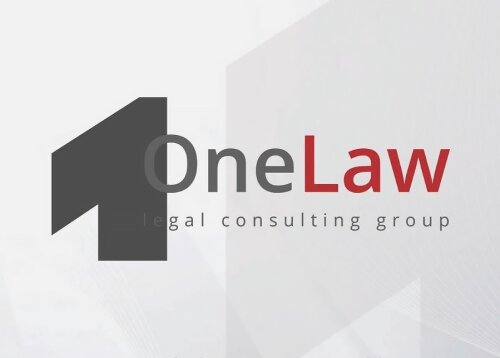Best Nonprofit & Charitable Organizations Lawyers in Yekaterinburg
Share your needs with us, get contacted by law firms.
Free. Takes 2 min.
List of the best lawyers in Yekaterinburg, Russia
About Nonprofit & Charitable Organizations Law in Yekaterinburg, Russia
Nonprofit and charitable organizations in Yekaterinburg, the fourth-largest city in Russia, play a critical role in supporting various social, cultural, educational, and environmental initiatives. Like other parts of Russia, Yekaterinburg recognizes these entities under designated legal frameworks that govern their formation, operation, and dissolution. Nonprofits here can take various forms, such as foundations, charities, and public associations, each with unique legal and operational attributes. Understanding the legal landscape is crucial for effective functioning and compliance with regulatory requirements.
Why You May Need a Lawyer
Engaging with legal professionals when dealing with nonprofit and charitable organizations can be vital for several reasons:
- Formation and Registration: Legal assistance is essential to navigate the complex registration and incorporation process, ensuring compliance with federal and local laws.
- Tax Matters: Determining and maintaining the tax-exempt status of your organization requires specialized legal knowledge.
- Compliance: Lawyers help ensure adherence to ongoing reporting, governance, and operational requirements, thereby avoiding penalties or legal complications.
- Contracts and Agreements: Legal guidance is crucial when drafting agreements, whether with donors, partners, or employees, to protect organizational interests.
- Dispute Resolution: In the event of internal conflicts or external disputes, a lawyer can provide representation and negotiate on your behalf.
Local Laws Overview
Nonprofit and charitable organizations in Yekaterinburg must comply with a broad set of regulations governed by both federal and local laws:
- Federal Laws: The primary legislation includes the Russian Federation's Civil Code, Law on Nonprofit Organizations, and Federal Law on Charitable Activities and Charitable Organizations, which set the foundation for nonprofit activities.
- Registration Requirements: Nonprofit organizations must be registered with the Ministry of Justice or its territorial bodies and meet ongoing reporting obligations.
- Tax Exemptions: Certain organizations may be eligible for tax exemptions, provided they comply with the relevant provisions under the Tax Code.
- Local Regulations: Yekaterinburg may impose additional requirements through local ordinances regarding the operation of nonprofits, especially concerning land use, public events, and fundraising.
Frequently Asked Questions
What is the process to register a nonprofit organization in Yekaterinburg?
Registration involves drafting necessary documents, such as the charter, and submitting an application to the local Ministry of Justice office, accompanied by required fees.
Are all charitable organizations in Yekaterinburg tax-exempt?
Not automatically. Organizations must meet specific criteria to qualify for tax-exempt status and may need legal advice to navigate these complexities.
Can a foreign national establish a nonprofit in Yekaterinburg?
Yes, foreign nationals can found and participate in nonprofit activities, though certain restrictions might apply, often requiring local legal guidance.
What constitutes a public association in the context of Yekaterinburg's regulations?
A public association is formed by individuals united voluntarily on the basis of common interests and can include clubs, societies, or advocacy groups.
What reporting obligations do nonprofits in Yekaterinburg have?
Nonprofits must regularly submit financial and operational reports to the relevant authorities to maintain compliance and their registered status.
How are disputes within a nonprofit typically resolved?
Disputes can be resolved through mediation, legal arbitration, or court proceedings, depending on the nature of the conflict and organizational policies.
What are the key governance requirements for a nonprofit in Yekaterinburg?
Governance requirements may include maintaining a board of directors, holding regular meetings, and adhering to the organizational bylaws and charter.
Is it necessary to have a Russian citizen on the board of a nonprofit?
While not legally required, it may facilitate smoother operations and compliance with local regulations and customs.
Can nonprofits in Yekaterinburg engage in commercial activities?
Yes, but only if such activities are supplementary to their primary nonprofit objectives and support the organization's mission.
What types of fundraising activities are legally permissible in Yekaterinburg?
Legal fundraising activities include public events, donations, and grant funding, provided they adhere to set regulations governing transparency and reporting.
Additional Resources
For more information and assistance, consider reaching out to:
- Ministry of Justice, Sverdlovsk Oblast: Handles registration and oversight of nonprofit organizations.
- Federal Tax Service: Provides guidance on tax matters and exemptions.
- Local Bar Associations: Offer listings of lawyers specializing in nonprofit law.
- Yekaterinburg City Administration: Can provide information on local ordinances affecting nonprofits.
Next Steps
If you require legal assistance for nonprofit and charitable organization matters in Yekaterinburg, consider the following steps:
- Identify your specific legal needs by assessing your organization's current challenges and objectives.
- Seek recommendations or consult local bar associations to find experienced lawyers specializing in nonprofit law.
- Schedule consultations to discuss your needs, the lawyer's approach, and fee structures.
- Gather and organize any relevant documents prior to your consultation to facilitate an efficient discussion.
- Follow the legal advice provided and maintain open communication with your legal counsel for ongoing compliance and support.
Lawzana helps you find the best lawyers and law firms in Yekaterinburg through a curated and pre-screened list of qualified legal professionals. Our platform offers rankings and detailed profiles of attorneys and law firms, allowing you to compare based on practice areas, including Nonprofit & Charitable Organizations, experience, and client feedback.
Each profile includes a description of the firm's areas of practice, client reviews, team members and partners, year of establishment, spoken languages, office locations, contact information, social media presence, and any published articles or resources. Most firms on our platform speak English and are experienced in both local and international legal matters.
Get a quote from top-rated law firms in Yekaterinburg, Russia — quickly, securely, and without unnecessary hassle.
Disclaimer:
The information provided on this page is for general informational purposes only and does not constitute legal advice. While we strive to ensure the accuracy and relevance of the content, legal information may change over time, and interpretations of the law can vary. You should always consult with a qualified legal professional for advice specific to your situation.
We disclaim all liability for actions taken or not taken based on the content of this page. If you believe any information is incorrect or outdated, please contact us, and we will review and update it where appropriate.














